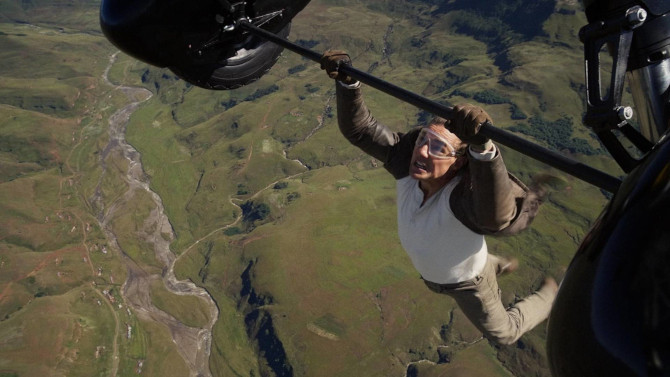
An Impossible Mission
How do you wrap up a franchise like Mission: Impossible? That is, if this even is the final installment... as they’ve made it sound (while at the same time, stars not named ‘Tom Cruise’ pipe up and suggest that might not be so). It has been twenty-nine years, with different writers and visionary directors – from twisty Brian De Palma and the action hair stylings of John Woo, to the lens flares of J.J. Abrams and animation expert Brad Bird, it was only about ten years ago that the franchise decided to opt for The Usual Suspects scribe Christopher McQuarrie for the final four. To return to that opening question once more, you could end with a Sopranos’ style cliffhanger, simply make another entertaining movie like the many before – like Everybody Loves Raymond did it with its final episode, or try to tie everything up in a neat little bow by bringing everything together as the Daniel Craig era did with James Bond. Well, it is definitely more along the lines of the latter example, with some distinct differences.
-
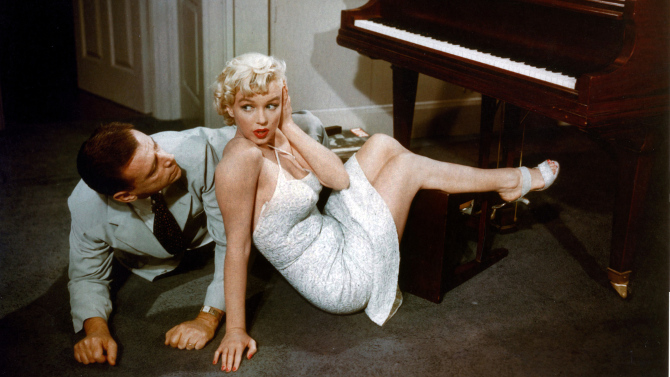
Hot Summer Night
The Seven Year ItchMarch 22, 2020Every once in a while, a scene, or to break it down even further, a moment, forever captures the zeitgeist of the cinema world. . . more long lasting and memorable than the movie ever could be. By now, you may have already guessed that I am talking about the breezy subway grate blowing up Marilyn Monroe’s flowy white dress (cooling her down on a hot summer’s night) in The Seven Year Itch (1955). Funnily enough, the press generated from the scene’s filming in New York City (the excitement of over five thousand fans watching them shoot and then spreading the word. . .along with the risqué-for-the-time photographs that circulated around the world) brought people into theatres to experience a moment that could never truly match up with what was broadcast. . . for the Hays code would never allow the revealing extent shown before the release to be seen on screen – though that is not to say that it is still not a fabulous clip. . . and I’m here to also say, so is the film.
-
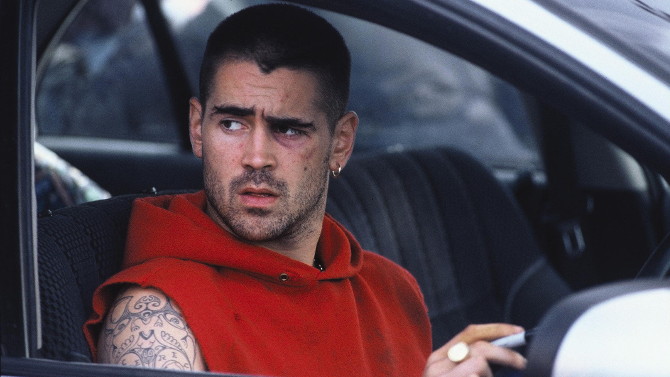
Mission: Interact
IntermissionMarch 20, 2020Like watching a magician shuffle a deck of cards (including jokers) into perfect numerical order, director John Crowley (Brooklyn) takes Mark O’Rowe’s screenplay, which consists of a whopping fifty-four characters (hence the jokers) and eleven separate storylines, weaving them together in wholly interesting ways to make Intermission (2003). What is it about Irish screenwriters that gives them the ability to build these complex stories in clever ways? I really don’t have an answer, but like the works of brothers Martin and John Michael McDonagh, there is a unique essence in this narrative that avoids tropes, Crowley intersecting all of O’Rowe’s stories in an impressive way.
-
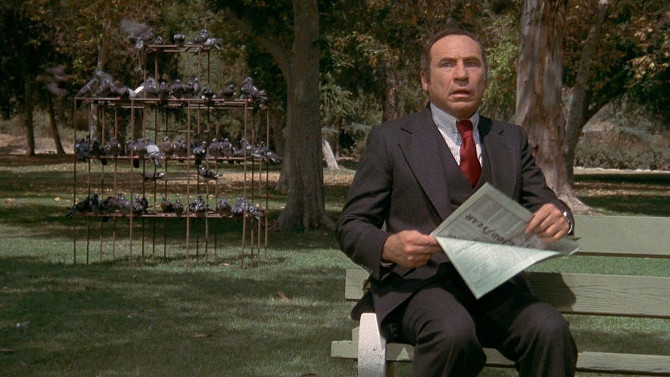
What Could Have Been: High Anxiety
March 17, 2020I will be the first to say that I absolutely love the great Mel Brooks. Secondly, I will also say that I absolutely love Alfred Hitchcock. So, to have a movie in which Mel Brooks satirizes the motion pictures of Alfred Hitchcock just seems like it would be pure twenty-four karat gold. Saying that, I probably went into 1977's High Anxiety with expectations that were just a bit too high. . . which caused me a touch of anxiety. Bringing together many of his usual comedy friends from his other 70s pictures, the plot follows the famed Dr. Richard Thorndyke (Mel Brooks) as he flies out to California for his new job – running the Psycho-Neurotic Institute for the Very, Very Nervous (a fenced complex that holds a sign that reads “Keep In”).
-

Love at First Fight
First LoveMarch 15, 2020Coming off a bit like an Asian version of a Quentin Tarantino/Guy Richie feature, First Love (2019) finds iconic Japanese director Takashi Miike (now with over one hundred films under his belt) in his favourite playground, fusing violence, comedy, crime, and romance together in a most entertaining way. An intricate ballet of characters shot at the pace of a hockey game, Leo (Masataka Kubota) is a lonesome boxer. . . an abandoned young man whose only skill is being a pugilist. Taking a limp-wristed punch during a bout, he unexpectedly crumples to the ground like a baby who has just realized that he can walk for the very first time. Medical investigation shows a tumour on the back of his brain – a death warrant. Seeing a street fortune teller (Bengal) soon after, he is frustrated at the man’s two views: one – that he is a healthy young man; and two – that he needs to have a cause and help people.
-
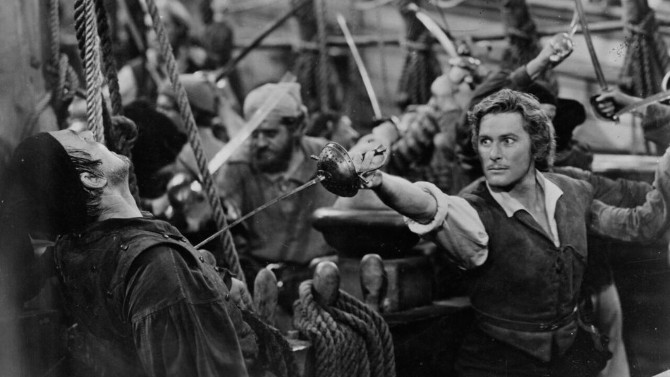
Get Your Sea Legs Ready
The Sea HawkMarch 9, 2020A night (or matinee) at the movies isn’t what it used to be. Now, we’re lucky if we see two trailers, the rest of the lengthy pre-show being packed with commercials that frustrate – bringing the atmosphere down several notches. Drawing your attention to what you would have seen circa 1940, you would have experienced a newsreel, followed by a live action short, then an engaging cartoon. . . all of this leading into the main event (the trailers running after the film’s closing. . . if you’ve ever wondered why they are called trailers, now you know). Flashing back to August 1940, air conditioned audiences would have witnessed the visual horrors of the war – specifically, the bombing of Britain (which started in July), these realities then leading into Alice in Movieland – a short depicting the dream machine that is Hollywood leading a girl to fame and glory (a fascinating watch due to its young lead – soon to be star Joan Leslie; How to Marry a Millionaire director Jean Negulesco’s direction [this a much earlier work]; and perhaps more than anything else, a screenplay written by young journalist Ed Sullivan – long before his rise to fame).
-
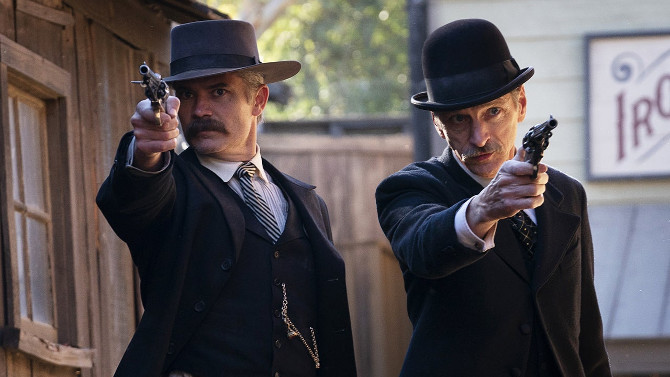
The Black Hills Are Alive
Deadwood: The MovieMarch 6, 2020When you are so in love with movies and tv series (as I am – and I’m sure many of you are as well), you can really get drawn into the idea that what you are watching is vital art and thrilling entertainment. Though that may be true, it can sometimes lead us to forget that at its core, everything we watch is actually a money making decision – which makes sense, though it can cause film lovers many frustrations. Movies shelved due to political issues, sequels canned due to underperforming box office returns, projects never getting green-lit due to their uniqueness, beloved television series being cancelled before getting their just endings. . . there are countless examples of disgruntled and frustrated fans never seeing projects they have long hoped for coming to fruition (or getting a satisfactory conclusion). Yet, every once in a while, a miracle happens. Flashback sixteen years and I was a movie and television obsessed teenager, bingeing numerous shows on DVD that have long since ended (somehow, Supernatural and The Simpsons are still there), one of which was Deadwood. A story like none seen before, it was western both traditional and modern, a cacophony of bloody good violence, foul language, entrancing historic stories and so much more. A show that opened firing on all cylinders, fans sopped up its muddy streets (and equally muddy characters), critics embraced every minute detail, and everything seemed right with the world. A few years later, all still seemed well in the world of Deadwood. . . until, out of blue, it was unceremoniously cancelled (after season three).
